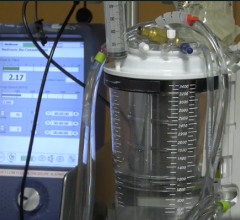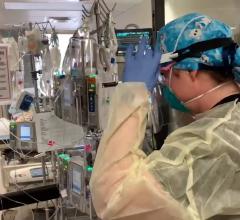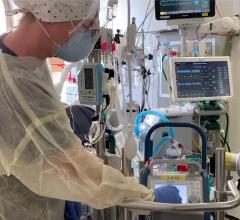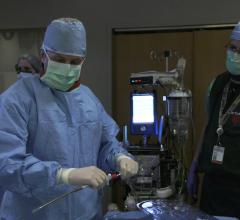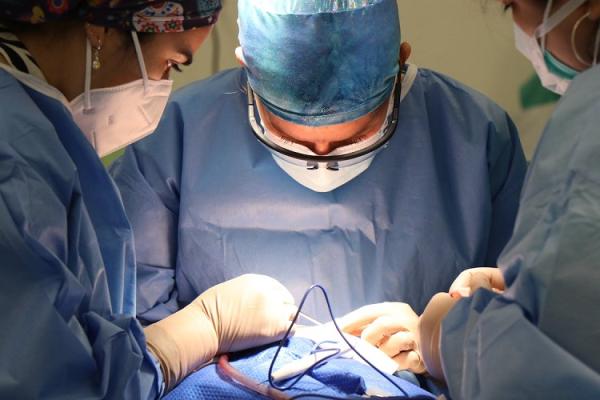
June 2, 2023 — Dr. Philip Cardiff, Associate Professor at University College Dublin's School of Mechanical and Materials Engineering, has received a European Research Council (ERC) Consolidator grant of €2 million for his 5-year project XenoSim. With the support of this award, Dr Cardiff will develop advanced computational techniques that can provide unprecedented insights into the cutting-edge realm of pig-to-human heart transplants.
ERC Consolidator Grants are awarded to help excellent scientists, who have 7-12 years’ experience after their PhDs, to pursue their most promising ideas. Worth €657 million in total, the grants will create around 1950 jobs for postdoctoral fellows, PhD students, and other staff at host institutions around Europe
President of the ERC Professor Maria Leptin said: “ERC Consolidator grants support researchers at a crucial time of their careers, strengthening their independence, reinforcing their teams and helping them establish themselves as leaders in their fields. And this backing above all gives them a chance to pursue their scientific dreams.”
A funded investigator in the national Advanced Manufacturing Centre I-Form and Director of the Bekaert University Technology Centre at University College Dublin, Dr Cardiff said: “We stand on the threshold of a groundbreaking medical era where pig-to-human heart transplants are becoming a reality. From an engineering standpoint, pig hearts share similarities with their human counterparts in terms of ‘pump design’; however, their distinct size, shape, and functional characteristics introduce important differences that can impact their performance within the human body.”
“With the support of this ERC Consolidator grant, we aim to unlock invaluable insights into these differences by developing advanced biomechanical computational models. This pioneering research promises to offer not only unprecedented insights into the cutting-edge realm of cardiac xenotransplantation but also to establish pioneering computational techniques with significant implications for a wide range of scientific disciplines.”
The Project
Xenotransplantation has long been a dream for clinicians and now, due to rapid progress in gene editing, is becoming a reality. To overcome immediate rejection, barriers of immunity and infection have to be overcome, but achieving long-term success requires a deep understanding of the physiological and mechanical challenges introduced by the anatomically dissimilar xenotransplants.
‘XenoSim: Providing Computational Insights into Cardiac Xenotransplantation’, aims to address these challenges by providing fundamental clinical insights into the nascent field of cardiac xenotransplantation through the development and application of novel high-resolution, higher-order, multiphysics simulation methods. Tremendous progress has been made in biomedical imaging, nonetheless, a multitude of physical phenomena relevant to xenotransplantation are not available for experimental observation.
In-silico studies are uniquely placed to provide insights into the haemodynamic disruption caused by replacing a human heart with an anatomically dissimilar one. XenoSim is targeting the establishment of the first family of porcine cardiac xenotransplant models that can provide clinically significant insights into the haemodynamic compatibility of porcine donor hearts, the impact of surgical approach, and the consequence of pathologies.
To provide these novel insights requires new coupled simulation approaches. Accordingly, the project aims to create a new class of monolithic finite volume fluid-electrosolid interaction methods, which can provide predictions in clinically relevant timescales through the exploitation of hybrid CPU-GPU systems. XenoSim will establish the new field of computational cardiac xenotransplantation. Furthermore, the novel numerical methods established by XENOSIM are expected to impact a broad range of fields well beyond the project end.
The XenoSim team will employ three Postdoctoral researchers, three PhD students and one Research Assistant.
For more information: https://www.ucd.ie/research/portal/
Related Pig Heart Transplant News:
Lab-grown Pig Heart Tissue Could Help Replace Live Animals in Heart Disease Research
Pig Heart Transplant Patient Continues to Thrive
First Human Receives a Pig Heart Transplant
Transplanting Pig Hearts Into Humans One Step Closer
FDA OKs Use New Version of Carmat Artificial Heart in U.S. Early Feasibility Study
Carmat Artificial Heart Shows Promising Automatic Regulation of Blood Flow
Heart in a Box Technology Expands Heart Transplant Window
FDA Clears SynCardia 50cc Temporary Total Artificial Heart as Bridge to Transplant
Stephanie’s Heart: The Story of Baby Fae
Hearts from donors who used illicit drugs or overdosed safe for transplant, cuts wait time
National Trends in Heart Donor Utilization Rates: Are We Efficiently Transplanting More Hearts?
Heart transplants from donors with hepatitis C may be safe and could help decrease organ shortage


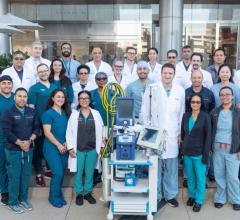
 September 13, 2023
September 13, 2023 

